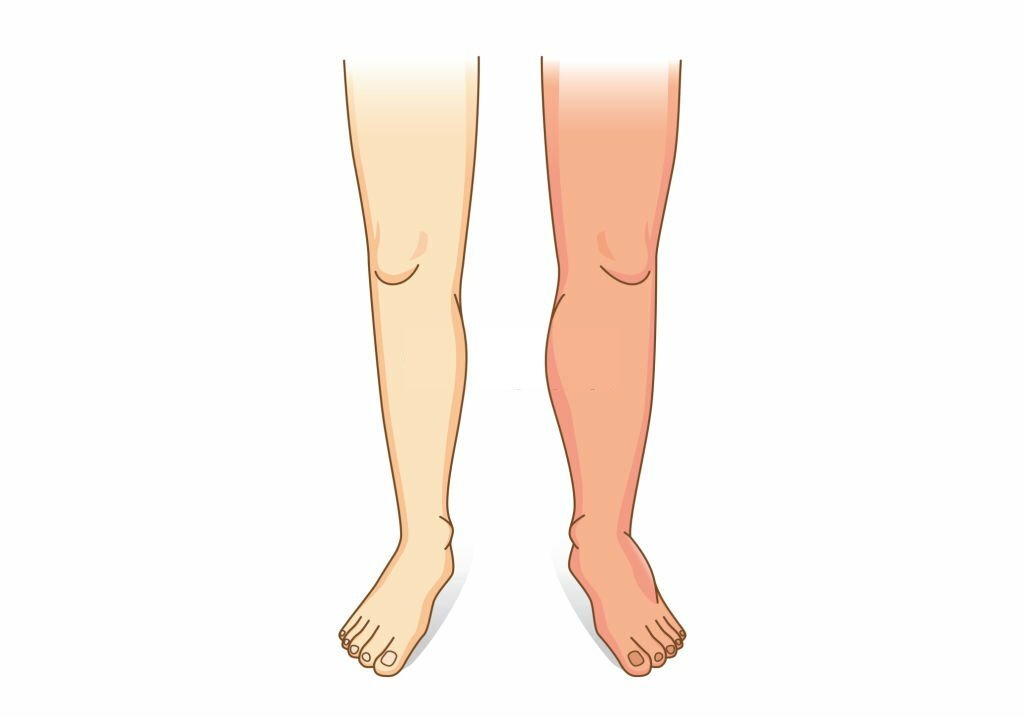Essential oils have been used for centuries to treat a variety of ailments, including fluid retention in legs. This condition, also known as edema, occurs when excess fluid builds up in the tissues, causing swelling and discomfort. While there are many conventional treatments available, some people prefer to use natural remedies, such as essential oils, to alleviate their symptoms.
Essential oils are concentrated plant extracts that contain the natural aroma and flavor of the plant. They are typically extracted through steam distillation or cold pressing and can be used for a variety of purposes, including aromatherapy, massage, and skincare. Some essential oils are particularly effective for reducing fluid retention in the legs, as they have diuretic and anti-inflammatory properties that help to reduce swelling and improve circulation. In this article, we will explore some of the best essential oils for fluid retention in legs and how to use them effectively.
Understanding Fluid Retention in Legs

Fluid retention in legs, also known as edema, is a common condition that occurs when excess fluid builds up in the tissues of the legs. This can cause swelling, discomfort, and pain in the affected area.
There are several factors that can contribute to fluid retention in the legs, including:
- Poor circulation
- Prolonged periods of sitting or standing
- Injury or trauma to the leg
- Hormonal changes during pregnancy or menopause
- Certain medications, such as blood pressure medications or steroids
In some cases, fluid retention in the legs may be a symptom of an underlying medical condition, such as heart, liver, or kidney disease. It is important to consult with a healthcare professional if you experience persistent or severe swelling in your legs.
Fortunately, there are several natural remedies that may help alleviate fluid retention in the legs, including the use of essential oils. In the next section, we will explore some of the most effective essential oils for treating fluid retention in the legs.
Essential Oils: An Overview
When it comes to managing fluid retention in legs, essential oils can be a helpful tool. Essential oils are concentrated plant extracts that are known for their therapeutic properties. They have been used for centuries in traditional medicine to help with a wide range of health issues.
Essential oils are extracted from different parts of plants, including leaves, flowers, roots, and bark. They are usually diluted with a carrier oil before being applied to the skin or inhaled. Some essential oils can also be ingested, but it’s important to do so under the guidance of a healthcare professional.
There are many different types of essential oils, each with its own unique properties. Some of the most commonly used essential oils for fluid retention in legs include:
- Cypress oil: Cypress oil is known for its diuretic properties, which can help to reduce fluid buildup in the body.
- Juniper berry oil: Juniper berry oil is also a diuretic and can help to flush out excess fluids from the body.
- Lemon oil: Lemon oil is a natural detoxifier and can help to stimulate lymphatic flow, which can reduce swelling and fluid retention.
- Grapefruit oil: Grapefruit oil is also a natural diuretic and can help to reduce fluid buildup in the body.
It’s important to note that essential oils should not be used as a replacement for medical treatment. If you are experiencing fluid retention in your legs, it’s important to speak with your healthcare provider to determine the underlying cause and appropriate treatment plan.
Benefits of Essential Oils for Fluid Retention

Essential oils have been used for centuries to alleviate various health conditions, including fluid retention in the legs. Here are some of the benefits of using essential oils for this purpose:
- Anti-inflammatory properties: Many essential oils, such as ginger, turmeric, and peppermint, have anti-inflammatory properties that can help reduce swelling and inflammation in the legs.
- Improved circulation: Essential oils like cypress, rosemary, and lemon can help improve blood flow, which can reduce fluid buildup in the legs.
- Lymphatic support: Some essential oils, such as grapefruit and lemongrass, can help support the lymphatic system, which is responsible for removing excess fluid from the body.
- Relaxation: Certain essential oils, such as lavender and chamomile, can help promote relaxation and reduce stress, which can also help reduce fluid retention.
When using essential oils for fluid retention, it’s important to dilute them properly and apply them topically. You can mix a few drops of essential oil with a carrier oil, such as coconut or almond oil, and massage the mixture into your legs.
It’s also important to note that essential oils should not be used as a substitute for medical treatment. If you experience severe or persistent fluid retention, it’s important to consult with a healthcare professional.
Exploring Specific Essential Oils
When it comes to reducing fluid retention in the legs, certain essential oils have proven effective. Here are a few specific oils that may help:
1. Cypress Oil
Cypress oil is known for its ability to improve circulation and reduce swelling, making it a great choice for those with fluid retention in the legs. It can also help ease muscle cramps and spasms.
2. Geranium Oil
Geranium oil is a natural diuretic, which means it can help flush excess fluids from the body. It also has anti-inflammatory properties that can reduce swelling and pain in the legs.
3. Lemon Oil
Lemon oil is another natural diuretic that can help reduce fluid retention in the legs. It also has a refreshing scent that can help boost mood and energy levels.
4. Juniper Berry Oil
Juniper berry oil is a powerful detoxifier that can help eliminate excess fluids and toxins from the body. It can also help improve circulation and reduce inflammation in the legs.
5. Fennel Oil
Fennel oil is another natural diuretic that can help reduce fluid retention in the legs. It also has anti-inflammatory properties that can help reduce pain and swelling.
Overall, these essential oils can be a great addition to any natural treatment plan for fluid retention in the legs. However, it’s important to use them safely and consult with a healthcare professional before use, especially if you have any underlying health conditions.
Peppermint Oil
Properties
Peppermint oil is derived from the peppermint plant. It has a cooling and refreshing effect on the skin and is known for its anti-inflammatory properties. Peppermint oil contains menthol, which helps to improve blood flow and reduce swelling. It also has a pleasant scent that can help to soothe the mind and promote relaxation.
Application
Peppermint oil can be used topically to reduce fluid retention in the legs. To use, mix a few drops of peppermint oil with a carrier oil, such as coconut or almond oil, and massage into the affected area. It is important to dilute peppermint oil as it can be irritating to the skin in its pure form.
Peppermint oil can also be added to a warm bath to help reduce swelling and promote relaxation. Simply add a few drops of peppermint oil to the bathwater and soak for 15-20 minutes.
It is important to note that peppermint oil should not be used during pregnancy or on children under the age of six. It can also interact with certain medications, so it is important to consult with a healthcare provider before using peppermint oil for fluid retention.
Lavender Oil
Properties
Lavender oil is a versatile essential oil that has a calming and soothing effect on the body. It is known for its anti-inflammatory, analgesic, and diuretic properties, which make it an effective treatment for fluid retention in the legs. The oil is extracted from the flowers of the lavender plant and is widely used in aromatherapy and natural medicine.
Application
To use lavender oil for fluid retention in the legs, add a few drops of the oil to a carrier oil such as coconut or almond oil and massage the affected areas. You can also add a few drops of lavender oil to your bath water and soak your legs for 15-20 minutes. Another option is to add a few drops of lavender oil to a bowl of hot water and inhale the steam to help reduce swelling and inflammation.
It is important to note that lavender oil should not be ingested and should be used externally only. If you have any skin sensitivities or allergies, it is recommended to do a patch test before using lavender oil. Additionally, pregnant or breastfeeding women should consult with their healthcare provider before using essential oils.
Overall, lavender oil is a natural and effective way to reduce fluid retention in the legs. Its calming properties can also help promote relaxation and improve sleep.
Lemon Oil
Properties
Lemon oil is extracted from the lemon peel through cold pressing. It has a refreshing, citrusy scent and is known for its antiseptic, astringent, and detoxifying properties. Lemon oil is also a natural diuretic, which makes it effective in reducing fluid retention in the legs.
Application
To use lemon oil for fluid retention in the legs, mix a few drops with a carrier oil such as coconut or jojoba oil and massage the mixture onto the affected area. You can also add a few drops of lemon oil to your bath water for a relaxing soak.
It’s important to note that lemon oil can cause photosensitivity, so avoid direct sunlight or tanning beds for at least 12 hours after application. Also, do not ingest lemon oil as it can be toxic when consumed in large quantities.
In conclusion, lemon oil is a natural and effective remedy for reducing fluid retention in the legs. However, it should be used with caution and always diluted with a carrier oil before application.
Rosemary Oil
Properties
Rosemary oil is derived from the leaves of the rosemary plant. It is known for its anti-inflammatory and diuretic properties that help reduce fluid retention in the legs. The oil also has analgesic and antispasmodic properties that help relieve pain and cramps associated with fluid retention.
The main components of rosemary oil are camphor, cineole, and alpha-pinene. These compounds work together to stimulate blood circulation, reduce swelling, and promote lymphatic drainage.
Application
Rosemary oil can be applied topically to the affected area by mixing a few drops of the oil with a carrier oil such as coconut oil or almond oil. Massage the oil into the skin in a circular motion until it is fully absorbed. Repeat this process twice a day for best results.
Rosemary oil can also be used in aromatherapy by adding a few drops to a diffuser or inhaling the oil directly from the bottle. This can help improve blood circulation and reduce swelling throughout the body.
It is important to note that rosemary oil should not be used by pregnant women or individuals with high blood pressure. Always perform a patch test before using the oil to ensure that you are not allergic to it.
In conclusion, rosemary oil is a natural remedy that can help reduce fluid retention in the legs. Its anti-inflammatory and diuretic properties make it an effective treatment for swelling and pain associated with fluid buildup.
Juniper Berry Oil
Properties
Juniper berry oil is extracted from the berries of the juniper plant, scientifically known as Juniperus communis. It has a fresh, woody, and slightly sweet aroma. The oil is rich in antioxidants, which help to fight free radicals and reduce inflammation. It also has diuretic properties that can help to reduce fluid retention.
Application
To use juniper berry oil for fluid retention in legs, we recommend the following:
- Dilute juniper berry oil in a carrier oil such as coconut oil or almond oil before applying it to the skin.
- Massage the diluted oil onto the affected area in a circular motion for 5-10 minutes.
- Repeat this process 2-3 times a day.
Please note that juniper berry oil should not be ingested, and pregnant women should avoid using it. We also recommend doing a patch test before using any essential oils to check for any allergic reactions.
In summary, juniper berry oil has diuretic and antioxidant properties that make it effective for reducing fluid retention in legs. When used correctly, it can be a safe and natural alternative to traditional treatments.
How to Use Essential Oils Safely
When using essential oils for fluid retention in legs, it is important to follow some safety precautions to avoid any adverse reactions. Here are some tips to help you use essential oils safely:
- Always dilute essential oils before applying them to your skin. You can mix them with a carrier oil like coconut, jojoba, or almond oil.
- Do a patch test before using any new essential oil. Apply a small amount of diluted oil to the inside of your elbow and wait for 24 hours to see if you have any allergic reactions.
- Avoid using essential oils on broken or irritated skin.
- Do not ingest essential oils unless under the guidance of a qualified healthcare professional.
- Keep essential oils out of reach of children and pets.
- Store essential oils in a cool, dark place away from direct sunlight.
By following these safety tips, you can enjoy the benefits of essential oils for fluid retention in legs without any negative side effects.
Potential Side Effects

When using essential oils for fluid retention in legs, it is important to be aware of potential side effects. While essential oils are generally considered safe when used properly, there are some risks to be aware of.
Firstly, some people may experience skin irritation or allergic reactions when using essential oils topically. It is important to do a patch test before using any new oil, and to dilute oils properly before applying them to the skin.
Additionally, some essential oils can be toxic when ingested. It is important to never ingest essential oils unless under the guidance of a qualified healthcare practitioner.
Finally, some essential oils can interact with certain medications. If you are taking any medications, it is important to consult with your healthcare provider before using essential oils.
Overall, while essential oils can be a helpful tool in managing fluid retention in legs, it is important to use them safely and responsibly. By being aware of potential side effects and using oils properly, you can enjoy the benefits of essential oils without putting yourself at risk.
Conclusion
Overall, essential oils can be an effective natural remedy for fluid retention in the legs. By using oils such as cypress, lemon, and grapefruit, we can help reduce inflammation and swelling in the legs. These oils can also improve circulation and lymphatic drainage, which can further aid in reducing fluid buildup.
It is important to note, however, that essential oils should not be used as a substitute for medical treatment. If you are experiencing severe or chronic fluid retention, it is important to consult with a healthcare professional to determine the underlying cause and appropriate treatment.
When using essential oils, it is also important to dilute them properly and use caution when applying them to the skin. Some oils may cause irritation or allergic reactions, so it is important to do a patch test before using them on a larger area of the body.
In conclusion, essential oils can be a useful tool in managing fluid retention in the legs, but they should be used as part of a comprehensive treatment plan under the guidance of a healthcare professional.
Frequently Asked Questions

What essential oils make swelling go down?
Some essential oils that may help reduce swelling in the legs include peppermint, lemon, and grapefruit. These oils have anti-inflammatory properties that can help reduce swelling and inflammation.
What oil helps with water retention?
Juniper berry essential oil is known for its diuretic properties, which can help reduce water retention in the legs. It may also help improve circulation and reduce inflammation.
How do you drain fluid from your legs naturally?
There are several natural ways to help drain fluid from the legs, including elevating the legs, exercising regularly, and massaging the affected area. Essential oils such as cypress and grapefruit may also be helpful.
What helps reduce fluid in legs?
In addition to essential oils, there are several other natural remedies that may help reduce fluid in the legs. These include drinking plenty of water, reducing salt intake, and eating a healthy diet rich in fruits and vegetables.
What are some essential oils for circulation and swelling?
Some essential oils that may help improve circulation and reduce swelling in the legs include peppermint, cypress, and ginger. These oils can be used in massage or added to a warm bath.
What are some supplements for edema in legs?
Supplements such as magnesium, potassium, and vitamin B6 may help reduce edema in the legs. However, it is important to consult with a healthcare professional before taking any supplements to ensure they are safe and effective for you.





